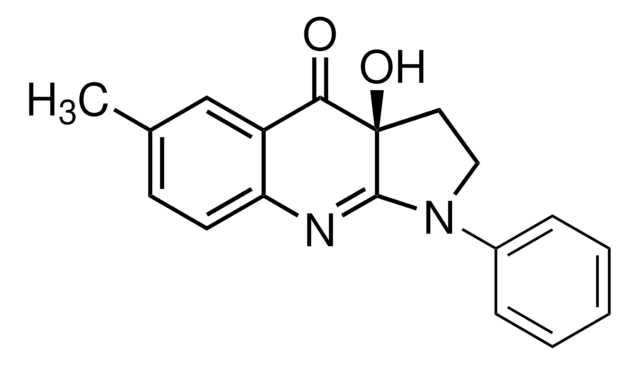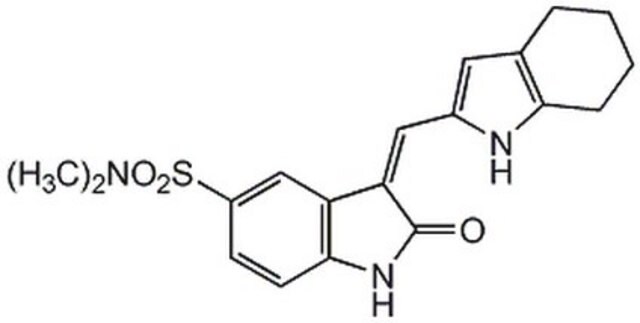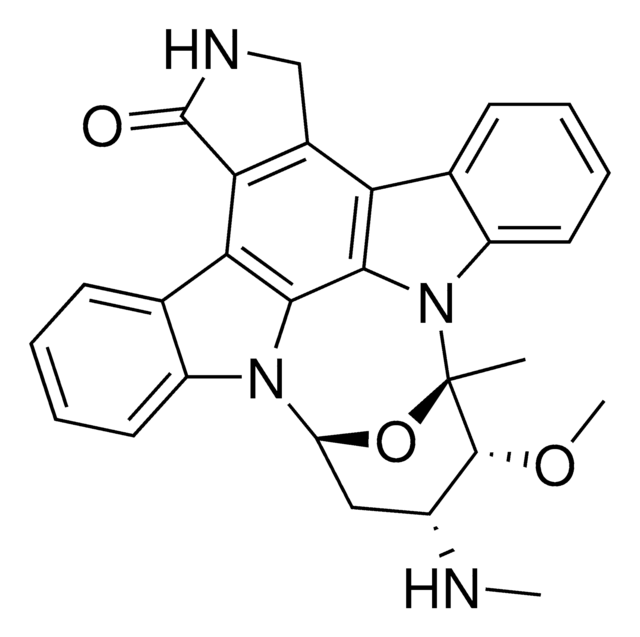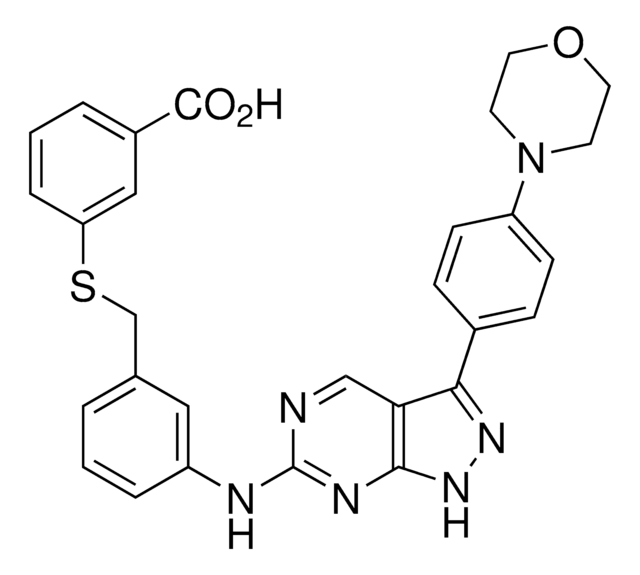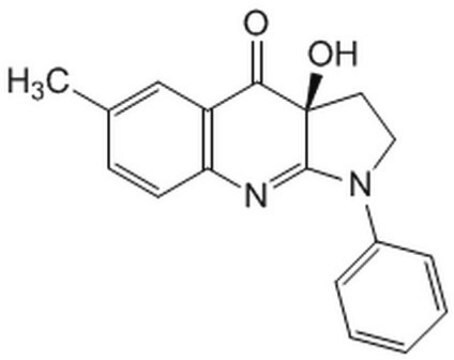SML2428
Pentabromopseudilin
≥97% (HPLC)
Synonym(s):
Pentabromopseudilin, 2,4-dibromo-6-(3,4,5-tribromo-1H-pyrrol-2-yl)phenol, PBP
About This Item
Recommended Products
assay
≥97% (HPLC)
form
solid
storage temp.
−20°C
SMILES string
OC1=C(Br)C=C(Br)C=C1C2=C(Br)C(Br)=C(Br)N2
InChI
1S/C10H4Br5NO/c11-3-1-4(9(17)5(12)2-3)8-6(13)7(14)10(15)16-8/h1-2,16-17H
InChI key
LXMNWKJHYOZUQL-UHFFFAOYSA-N
General description
Other Notes
Working Stock: PBP can be dissolved in DMSO at concentration of 10mM, solution should be stored in the dark at -80°C.
Storage Class
10 - Combustible liquids
wgk_germany
WGK 3
flash_point_f
Not applicable
flash_point_c
Not applicable
Choose from one of the most recent versions:
Certificates of Analysis (COA)
Don't see the Right Version?
If you require a particular version, you can look up a specific certificate by the Lot or Batch number.
Already Own This Product?
Find documentation for the products that you have recently purchased in the Document Library.
Our team of scientists has experience in all areas of research including Life Science, Material Science, Chemical Synthesis, Chromatography, Analytical and many others.
Contact Technical Service
